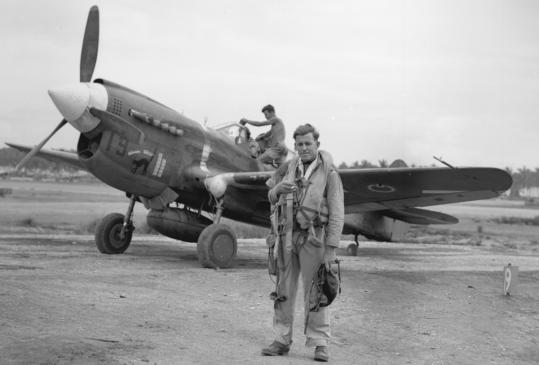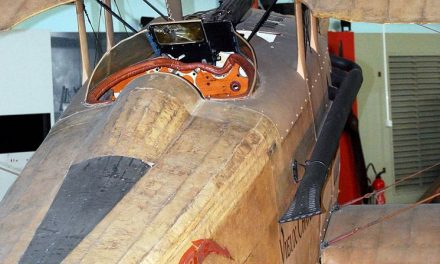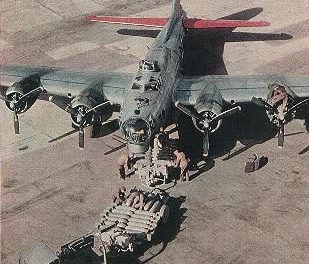
This post illustrates my style. I strive for authentic history, a decent photo quality, and I credit my sources.
Originally shared by Pete Panozzo
Geoff Fisken
Growing up on New Zealand’s North Island in the 1920s, Geoff Fisken seemed destined for a quiet life working on the vast sheep farms his father owned. But he became fascinated with airplanes when his father, Robert, began flying on his trips around the country. At 14, Geoff flew solo in a biplane.
When war loomed in 1938, he sought to enlist in the Royal New Zealand Air Force, only to be turned down because the government classified agricultural work as an essential occupation. He tried again in 1940, and this time he was accepted.
He was stationed in Singapore, the site of a major British naval base, when the Japanese invaded Malaya on Dec. 8, 1941, the day after their attack on Pearl Harbor, and he went aloft to confront Japanese planes as a member of a vastly outnumbered British air squadron.
By mid-January 1942, Sergeant-Pilot Fisken, flying US-made Brewster Buffaloes, had shot down six Japanese fighters or bombers, according to the New Zealand Fighter Pilots Museum, one more than the number required to be an ace.
He went on to become the British Commonwealth’s number one fighter pilot in the Pacific, credited with downing at least 11 Japanese planes.
Mr. Fisken died June 11 at age 96 in Rotorua in central North Island. He had spent much of his postwar years as a sheep farmer.
Mr. Fisken, a native of Gisborne, on the North Island’s eastern coast, seemed to experience a charmed existence facing the vaunted Japanese Zero fighters in his first weeks of combat. But in February 1942, his plane was hit by Japanese fire in an aerial duel, his engine failed, and he made a crash landing. It was then that he discovered he had been wounded.
“When I got out of the plane, my mechanic fainted because he saw all the blood down my leg,’’ he told Bruce M. Petty for the oral history “New Zealand in the Pacific War’’ (2008). “There was about a 4-inch piece of steel sticking out of my hip. We couldn’t get it out with a pair of pliers, so I had to go over to the hospital to get it cut out.’’
He returned to combat while receiving daily pain-killing injections, then was evacuated from Singapore shortly before it fell to the Japanese in February 1942. Sent home for a rest in March, he was at the train station in Wellington when he phoned his mother, Grace, to let her know he would soon be seeing her.
“She couldn’t speak to me,’’ he remembered, telling how his sister came to the phone to report that the family “had got a message the day before from the Ministry of Defense to say I was missing and believed killed. So when my mother heard my voice, she fainted.’’
He joined the Solomon Islands campaign in June 1943, arriving on Guadalcanal to fly US-built Curtiss P-40 Kittyhawk fighters alongside US pilots. Patrolling over the island of Rendova, he shot down two Japanese fighters and a bomber on July 4. He was awarded a Distinguished Flying Cross in September.
His leg injury brought his discharge from military service in December 1943 as a flight officer. In addition to his 11 confirmed kills, he had several probable downings of Japanese planes, the fighter plane museum said.
After farming in Rotorua for years, Mr. Fisken worked for a regional egg-marketing board.
When he would shoot down a Japanese plane, Mr. Fisken recalled in the oral-history interview, he could “usually sleep quite easily.’’ But one day he thought about the families of the fallen Japanese pilots.
As he told it, “This day I thought if I had been shot down, my mother would have been terribly upset. . . . They had mothers, too.’’
http://archive.boston.com/bostonglobe/obituaries/articles/2011/07/17/geoff_fisken_96_shot_down_11_japanese_planes_in_wwii/
Photo caption: Geoff B. Fisken flew a US-built Curtiss P-40 Kittyhawk during the Solomon Islands campaign in June 1943. Geoff B. Fisken flew a US-built Curtiss P-40 Kittyhawk during the Solomon Islands campaign in June 1943. (Royal New Zealand Air Force Museum)




Recent Comments